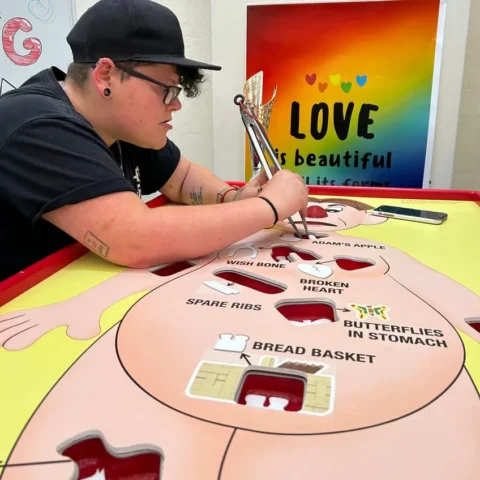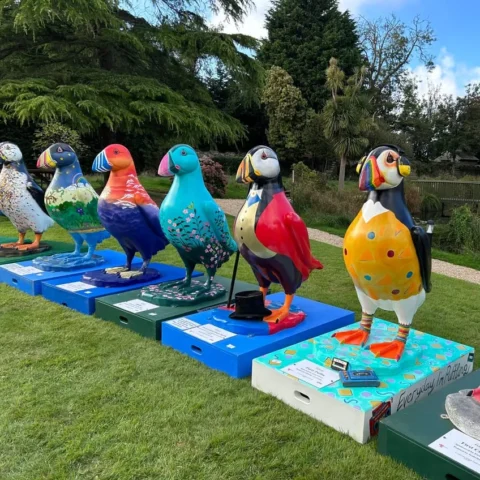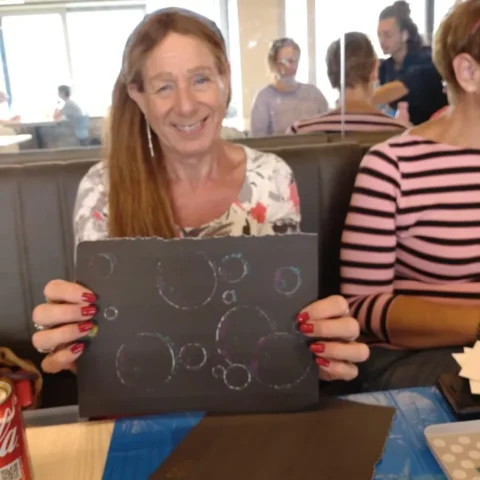
Transgender, Trans, Non Binary & Gender Nonconforming
Here you can find information, advice, and support to any individual who feels they do not conform to conventional societal ideals of identity, or to binary gender roles attributed to the male or female sex.

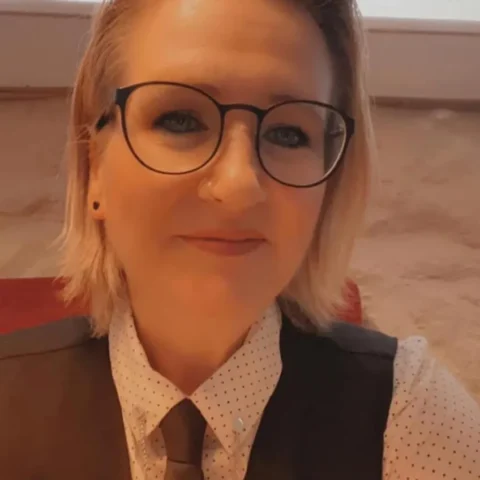
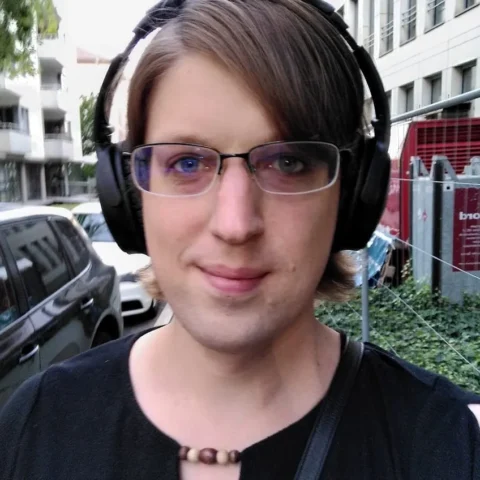


You may be a Trans person, a person who is questioning their gender identity, a person with a Trans family member or friend, or have questions regarding gender and transition.
Please know that you are not alone. There are many other people like you in Guernsey. We offer a comprehensive Trans-led support network within the Bailiwick of Guernsey (including Alderney, Sark and Herm).
We have a monthly Trans Guernsey Get Together that you can join when you are ready. We also have Trans support and social WhatsApp groups. All of our Trans groups are run by local Trans members of Liberate and aim to offer peer-led support.
Take me to my people!"Gender is a lot like a pair of shoes,” the analogy begins. “If you have on a good, comfortable, well fitting pair, you don’t notice it or think about it. As you walk around you aren’t constantly thinking about your shoes and the comfort, it’s just there and fine and normal and it doesn’t concern you one single bit. It’s almost hard to notice because if they feel fine it seems too silly and unimportant to spend energy thinking about it."
Glossary of Gender Identity terms
When discussing trans related topics it is important to explain the differences between biological sex, gender identity, gender expression and sexual orientation. All these categories exist in their own right, and nowadays it is more commonly recognised that they also exist on their own spectrum.
A traditional classification of biological sex to define people as ‘Male’ or ‘Female.’ You may see terms such as AFAB or AMAB to mean ‘Assigned Female At Birth,’ or ‘Assigned Male At Birth’ respectively. At birth, infants are assigned a sex, usually based on the appearance of their external anatomy. (This is what is written on the birth certificate.) However, a person’s sex is a combination of bodily characteristics including: chromosomes, hormones, internal and external reproductive organs, and secondary sex characteristics. For the majority of people, these tend to occur in two typical patterns (male and female), however some people have a different combination, and this is called Intersex.
Gender is a term that describes social and cultural behaviours, rather than biologically-determined behaviour. Gender is traditionally associated with biological sex or ideals of femininity or masculinity, which have largely been determined by conventional social norms towards sex assignments at birth. Someone’s gender may be different to the sex and gender they were assigned at birth.
‘Trans’ is a commonly accepted umbrella term to describe people whose internal gender identity does not match with the sex they were assigned at birth. It includes individuals who identify with a wide variety of terms such as transgender, non-binary, androgynous, bi-gender, gender queer, gender nonconforming, genderless, agender, and (in some cases) Intersex. It can describe those who feel they do not exist neatly within the two primary genders of ‘Male or Female’ (e.g. non-binary) or those who do not identify with an established sex or gender label, category, or norm at all. Some people also prefer to self-describe as ‘queer.’
When a person’s assigned gender at birth matches their internal gender identity. Most people have a gender identity of man or woman (or boy or girl), which is usually assigned at birth depending upon the shape of genitalia (i.e. an individual with male-typical genitalia is assigned the gender ‘boy’ and then later ‘man’, while an individual with female-typical genitalia is assigned the gender ‘girl’ and then later ‘woman’). Non-Trans is a synonymous term that is sometimes used.
One’s internal, deeply held sense of one’s gender. Unlike gender expression (see below) gender identity is not visible to others. It describes your identity – that’s who you are as a person – and can be as unique as there are individuals. People can be cisgender or transgender.
Gender Dysphoria is a term used in clinical diagnosis to describe a person’s symptoms of discomfort or distress which may be caused because their sex assigned at birth does not match their gender identity, or because of biological sex-related physical characteristics. Treatment is available and what treatment is appropriate varies depending on the individual. Treatment options can include counselling, gender-affirming care, speech and language therapy, and more.
External manifestations of gender, expressed through one’s name, pronouns, clothing, hair style, behaviour, voice, or body characteristics. Society identifies these cues as masculine and feminine, although what is considered masculine and feminine changes over time and varies by culture. Typically, transgender people seek to make their gender expression align with their gender identity, rather than the sex they were assigned at birth.
Traditionally, masculinity and femininity have been ideals of gender expression based upon conventional norms of biological sex which have varied across time and cultures.
Femme can describe someone who expresses their gender identity in a typically feminine way. Sometimes people will self-describe as low, high, or hard femmes, and they may be of any sex or gender identity. Masc, sometimes called ‘butch,’ can describe any sex or gender identity so long as their gender expression is typically masculine.
This is when someone first tells another person or other people about their sexual orientation and/or gender identity. When a person’s orientation or identity is disclosed without their consent, this is called ‘Outing.’ Outing somebody can amount to discrimination, a hate crime, a breach of human rights, or harassment.
This is where a person describes someone by their birth name after they have changed their name to align to their identity, most commonly a Trans person. To deadname someone, knowingly or otherwise, is highly offensive and harmful. In some cases it may amount to harassment, a hate crime, human rights violations, or discrimination. It is important for organisations to keep records up to date to avoid deadnaming.
Gender reassignment can include medical gender-affirming care, or social transitioning (e.g. changing pronouns, names, dress, gender expression). Gender reassignment is a protected characteristic under the UK’s Equality Act.
A GRC is an officially document for Trans people to achieve legal recognition and gender affirmation. Not all Trans people wish to apply for a GRC, but it can be helpful or necessary in certain instances.
A medical law term used to determine if a child (aged 16 years and below) is mature enough to consent to their own medical treatment, without the requirement of parental permission or knowledge. This has been used in Guernsey for decisions such as Covid vaccines.
Words used as a substitute for a noun to communicate a given person, number, or type without repeatedly using the noun. Pronouns have several sub-categories, for example reflexive pronouns (themselves), object pronouns (them) or possessive pronouns (theirs). Personal pronouns often factor into gender expression (I, we, you, he, she, they, it). ‘They’ can be used to describe a singular person who is known to be gender neutral (e.g. somebody who uses they/them pronouns) or somebody with an unspecified gender.
This describes the journey or process of somebody exploring their own sexual orientation and/or gender identity.
Transitioning is the journey of a Trans person to live in authenticity and in alignment with their gender identity. Transitions are unique and depend on the individual’s personal inherent identity. Some transitions may involve hormone therapy or surgery, some may involve social transitioning or altering legal documents. Some people’s transitions may be restricted by a lack of access to gender affirming care. Sometimes FTM or MTF is used meaning ‘female to male’ or ‘male to female’ to explain a person’s journey.
A fear, hostility, or prejudice someone may have against Trans people as a whole or towards an individual person, which is motivated because they are Trans or are perceived to be Trans. Transphobes often deny a Trans person’s gender identity and refuse to accept the validity of Trans experiences. Trans identity is a protected characteristic in UK hate crime and equality law, and under Human Rights Conventions.

